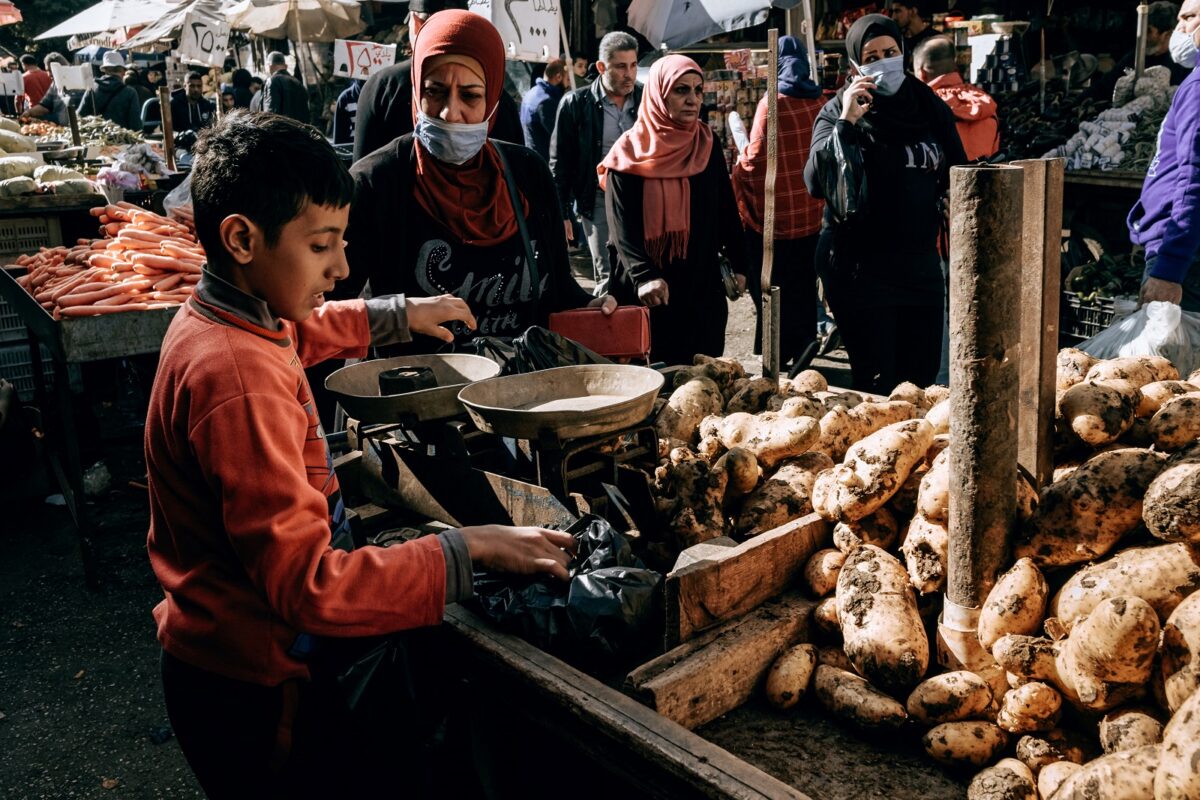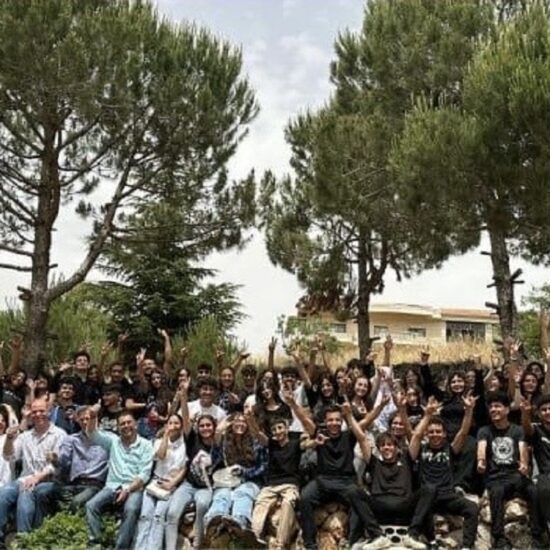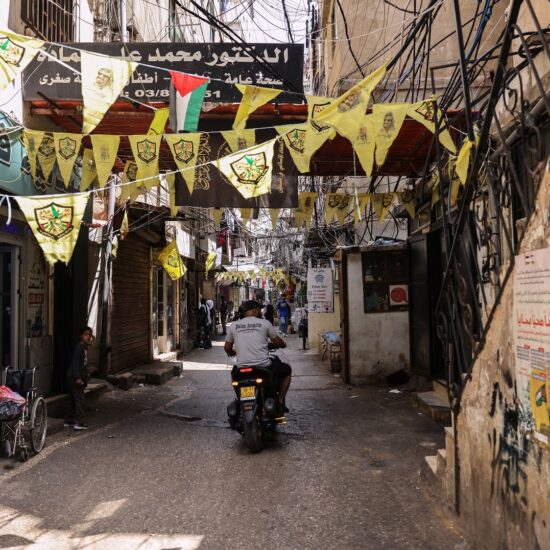
Amidst Lebanon’s economic turmoil, the economic hardship has forced many families into poverty, compelling them to rely on their children’s income for survival
Poverty and harsh living conditions, depleted savings and resources, insufficient humanitarian aid and the struggle to meet basic needs have led parents to adopt negative coping strategies including restricting children’s access to education and resorting to child labor. More and more alarmingly, there are higher rates of school dropouts due to financial constraints, distance, and poor quality of education that is pushing Lebanon’s children into work.
“Many Lebanese and non-Lebanese families are under immense pressure to meet basic needs which is pushing children into child labor, that is in many cases restricting their access to formal and non-formal education,” said Rola Sabbagh, a researcher at UNICEF Lebanon who specializes in labor rights and child welfare.
The inflation and currency devaluation in the country, caused by the economic crisis, has widely contributed to the rise in child labor as prices of basic goods and services have skyrocketed, which in turn has drastically reduced the purchasing power of households.
Unemployment rate has also surged, with many adults losing their jobs or facing severe pay cuts. This has left families struggling to meet basic needs.
With many households losing their primary source of income, children are often forced to work to help support their families. This is especially true in sectors like agriculture, street vending, and small workshops.
Recent statistics have illustrated that child labor is one of the most pertinent protection issues facing children in Lebanon at the current time.
Over the past few years, multiple assessments have shown a steady rise in child labor incidents in Lebanon. In June 2023, UNICEF published a study revealing that approximately 15 percent of surveyed families in Lebanon had engaged a child in the labor market. The study’s sample consisted of 52 per cent Lebanese, 24.7 per cent Syrian, and 23.3 percent Palestinian families.
The impact on children
The interruption of education has long-term implications for Lebanon’s children’s future prospects. Lack of education limits their opportunities for better-paying and more secure jobs in adulthood, perpetuating the cycle of poverty.
The increase in pressure on children to financially support their families may lead to an increase in psychosocial distress and negative coping mechanisms.
According to Rola Sabbagh, children are at higher risk of experiencing various forms of violence, exploitation, and abuse from employers, and individuals in positions of authority.
“In child labor there is an increased likelihood of family separation as children seek work opportunities that are no longer available in their local communities,” said Sabbagh.
The economic crisis in Lebanon has severely exacerbated the issue of child labor, driven by the urgent need for families to survive amidst rampant inflation, unemployment, and poverty.
“Addressing this issue requires comprehensive efforts, including stronger enforcement of child labor laws, increased support for education, and targeted interventions to alleviate the financial burdens on families,” Mazen Dagher, a school observer at the Ministry of Education, explained to NOW.
The economic strain has led to a significant increase in school dropouts as education becomes a secondary priority when families are struggling to survive, pushing children into the workforce, according to Dagher.
The growing concerns over child labor are the result of compounded risk factors including poverty, low access to services, limited access to education opportunities and loss of livelihoods.
Many children work in the agricultural sector, particularly in rural areas like the Beqaa Valley. They perform tasks such as harvesting, planting, and tending to crops, often in hazardous conditions.
In urban areas, children are involved in street vending, begging, and working in small shops or cafes. This work is often informal, unregulated, and exposes children to exploitation, according to Sabbagh.
Addressing this issue
Government initiatives: The Lebanese government has set laws against child labor, but enforcement is weak. There is a need for stronger implementation of these laws and better support systems for affected families.
The Ministry of Labor has initiated efforts to amend labor legislation, aiming to raise the minimum working age to 15.
NGO and international aid: Various non-governmental organizations (NGOs) and international bodies like UNICEF are working to provide support to families, improve access to education, and raise awareness about the dangers of child labor.
Sacrificing their future
Thirteen-year-old Mohammad Ibrahim from Akkar told NOW more about how he was forced to leave school and work in agriculture to help aid his family financially.
“I used to go to school but my family’s financial situation became so difficult that I had to leave my education behind and work in the fields to help support the house. Every day, I work long hours in the heat, picking vegetables, and doing other tasks.” Mohammad told NOW.
For Mohmmad, child labor is not a choice, it’s a harsh reality that children are forced into, and it needs to end so that all children in Lebanon can have a brighter future.
Child labour remains a troubling issue in Lebanon, stemming from inadequate child protection policies despite the significant international aid received and the efforts of UN agencies.
Feras Arnous, a 14-year-old who lives in the Beqaa Valley with his grandparents told NOW: “The work is incredibly hard as I carry heavy bricks and cement all day under the burning sun.”
“Sometimes I come home with bruises and sore muscles, but I don’t complain because my family needs the money. I wish I could go to school like other kids my age, but right now, supporting my family is more important,” Feras added.
According to the experts interviewed in this piece, addressing child labor in Lebanon requires a concerted effort from all sectors of society. While progress has been made through legislative measures and awareness campaigns, the persistence of child labor underscores the need for continued action.
Strengthening enforcement of existing laws, enhancing educational opportunities, and providing social support to vulnerable families are essential steps. Moreover, fostering partnerships between government, NGOs, and international organizations is crucial for implementing sustainable solutions.
Rodayna Raydan is a Lebanese-British journalist. You can follow her on Twitter @Rodayna_462
The views in this story reflect those of the author alone and do not necessarily reflect the beliefs of NOW.







